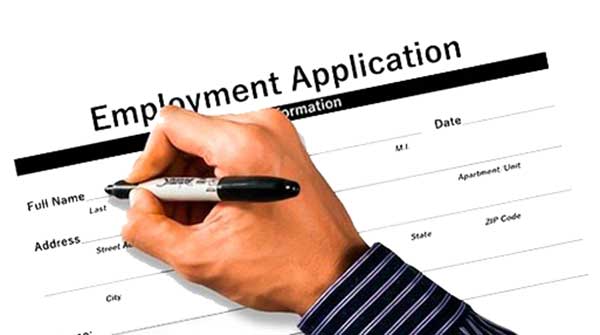Of all business activities, hiring is the most biased
 “Why didn’t I get the job?” is the most universal question job seekers ask.
“Why didn’t I get the job?” is the most universal question job seekers ask.
You will seldom know the real reason.
Wishful thinkers sell themselves the false narrative that the most qualified candidate gets hired. This is simply not true. Of all business activities, hiring is the most biased. A candidate’s charisma plays a significant part in getting hired, as does being a referral (the power of networking). However, often candidates – qualified as they may be – destroy their chances of getting hired.
Regardless of how many letters you have after your name, your years of experience, or your reputation within your industry/field, there are many reasons an employer isn’t saying “Yes!” to you, the most common being:
Your social media is a turnoff
 |
| Related Stories |
| How to make LinkedIn your job search partner
|
| Common cover letter mistakes you need to avoid
|
| ‘Lazy’ millennials will be 75 per cent of the workforce by 2025
|
Without a doubt, employers will Google you, dissect your social media activities, and review your LinkedIn profile to decide if you’re interview-worthy. If you’re applying for jobs you’re well qualified for and not getting responses, consider your digital footprint. Meticulously go through your social media accounts. Delete anything that reflects poorly on you being a mature individual who makes good decisions.
TIP: Before you post anything on social media, ask yourself:
- Am I boasting? (Trying to impress)
- Will this enhance or diminish my reputation? (Personal brand)
- Is it kind?
- Is it true?
You’ve got a negative attitude
I’ve lost count of how many candidates I’ve met who complained about their former or current boss and sometimes their coworkers during an interview. They probably think this will show why they want to change. Actually, it shows they’re a complainer and probably not a team player, which is someone I don’t hire.
Sage advice when to come to interviews: If you have nothing nice to say, then say nothing at all.
You didn’t do any research
Even in the age of Google, I still get asked, “What does this company do?” If you don’t know what the company does, how it’s doing, what market it serves, or who its clients are, then you can’t tell me, let alone convince me, how you can add value to the company.
You smell bad
Are you a smoker? Most people today don’t smoke. Since your interviewer is likely to be a non-smoker, they will smell your cigarette smoke, turning them off. Moreover, your interviewer will be asking themselves how many smoke breaks you will be taking throughout the workday.
The same goes for heavy cologne or perfume use. You never know who has allergies or fragrance sensitivity. So play it safe: go to your interview clean and fresh.
You’re desperate
Have you ever done an interview while employed? If yes, I bet you were less nervous. You already had a job, so the pressure to find a job to pay your bills wasn’t there. You weren’t desperate!
Coming across as being desperate is a turnoff. So, play it cool, but not too cool; you don’t want to seem indifferent to whether or not you get hired.
You don’t look the part (image is everything!)
How you look when walking into an interview or greeting an interviewer in the reception area cannot be overstated.
How you dress is how you’ll be judged if:
- You’re serious about being hired
- You’re “one of them” (You’ll be a fit)
- You have respect for yourself and those around you
Your salary expectations are unrealistic
The value to an employer many job seekers have of themselves is often questionable. It’s not uncommon for me to immediately end the interview if the candidate is looking for more money, benefits and perks than the position is worth paying.
Research the salary range the job you’re applying for pays in your area and be ready to negotiate a compensation package you’ll be satisfied with. Although start-ups and small family businesses probably cannot offer you the compensation and benefits that large companies can, they may provide advantages worthwhile considering (e.g., fewer office politics, greater flexibility, more hands-on experience).
The good news is that all of the above issues can be fixed. (Yes, even a digital footprint that turns off employers can be corrected.) It’s just a matter of being honest with yourself, not playing the “I’m a victim!” game that some “ism” is why you aren’t getting hired, and question how you present yourself in interviews.
Nick Kossovan, a well-seasoned veteran of the corporate landscape, offers advice on searching for a job.
For interview requests, click here.
The opinions expressed by our columnists and contributors are theirs alone and do not inherently or expressly reflect the views of our publication.
© Troy Media
Troy Media is an editorial content provider to media outlets and its own hosted community news outlets across Canada.

I would guess that big spelling and/or grammar mistakes or not proofreading your application might affect your “changes” of getting hired. It would most certainly affect your chances of getting hired.
Good catch Mike. Thanks for letting us know. I blame it on the broken coffee pot.